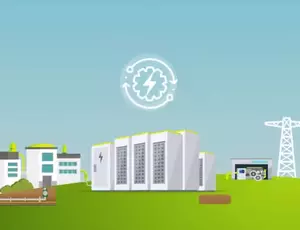With the NHS responsible for 25% of public sector emissions in England, the healthcare sector needs to act now to meet Net Zero targets.

Time is ticking
The UK's legal Net Zero deadline is 2050, putting pressure on the country as a whole. The pressure is intensified for hospitals, with the NHS setting a Net Zero target of 2040, and some trusts setting even earlier targets. Healthcare is a carbon-intensive industry, so decarbonisation needs to be a priority. However, the top priority for trusts needs to be patient care and safety. Trying to balance achieving Net Zero with maintaining high levels of patient care can seem daunting.
Tackling your carbon footprint
Around 60% of the NHS' carbon emissions are related to procurement, including energy and waste, so these are key areas on which to focus your attention. Developing an individual roadmap will help you to identify the changes and projects you need to think about to help you meet Net-Zero. These can include introducing blended energy solutions or switching to less carbon-intensive options, such as converting from steam to low-temperature hot water.
By introducing less carbon-intensive energy solutions, such as heat pumps, alongside existing, more traditional energy sources, hospitals are able to reduce their carbon footprint without a complete overhaul, which would be far more costly. Security of supply is also key and is the main priority when looking at upgrading any core infrastructure. Veolia can help you to identify the projects that will work with your hospital, and design and build the solutions that will help you meet your Net Zero goals. We can also advise on the best funding options, including government grants, to ensure that any investment in decarbonisation doesn't compromise vital investment in patient care.
In terms of waste, introducing greater segregation can help to reduce emissions, as it enables waste streams to be treated individually in the most sustainable manner, rather than all waste being stored together, causing contamination and meaning that all waste has to be incinerated. We can also collaborate on projects which go beyond energy and waste: we can help you to explore solutions for electric vehicles, or to move away from single-use plastics. For projects of any kind, we can offer support and help you to develop the right solutions for your trust.



